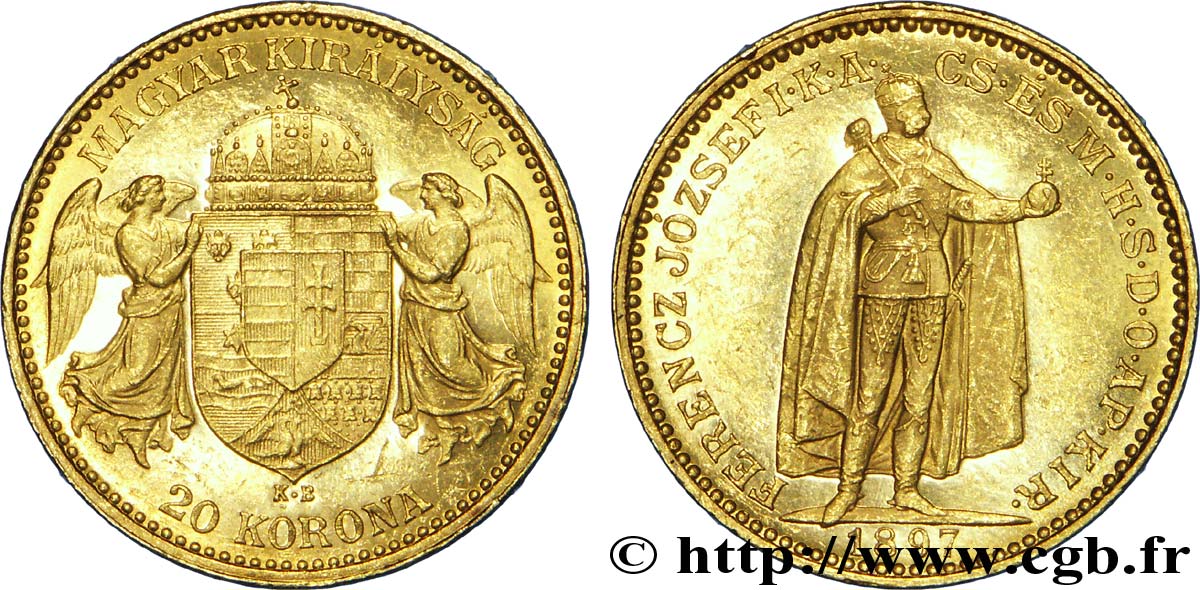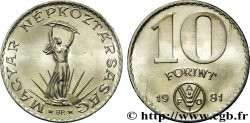fwo_204737 - HUNGARY 20 Korona François Joseph / écu de Hongrie 1897 Kremnitz, KB, 1.819.000 ex
Not available.
Item sold on our e-shop (2010)
Price : 280.00 €
Item sold on our e-shop (2010)
Price : 280.00 €
Type : 20 Korona François Joseph / écu de Hongrie
Date: 1897
Mint name / Town : Kremnitz, KB, 1.819.000 ex
Quantity minted : 1819000
Metal : gold
Millesimal fineness : 900 ‰
Diameter : 21 mm
Orientation dies : 12 h.
Weight : 6,78 g.
Edge : inscrite en creux BIZALMAM AZ OZI ERENYBEN (Ma confiance a la vertu originelle)
Coments on the condition:
Presque FDC
Catalogue references :
Obverse
Obverse legend : FERENCZ JOZSEF I. K. A. - CS. ES. M. H. S. D. O. AP. KIR./ 1897.
Obverse description : François-Joseph Ier debout en pied à droite, en habit de sacre.
Obverse translation : (François-Joseph par la grâce de Dieu empereur d'Autriche et roi apostolique de Hongrie, Croatie, Slavonie et Dalmatie).
Reverse
Reverse legend : MAGYAR KIRALYSAG/ 20 KORONA.
Reverse description : Écu couronné surmonté de la couronne de saint André soutenu par deux anges.
Reverse translation : (Royaume de Hongrie).
Commentary
La réforme monétaire de 1892 modifia l'unité monétaire qui devint la korona, divisée en 100 fillers. Ce type fut fabriqué entre 1892 et 1915. Par rapport à des événements récents, nous constatons qu'en Hongrie du XIXe siècle, le passage définitif d'une devise à une autre se fit en vingt-sept ans. Les Européens d'aujourd'hui sont devenus, semble-t-il, bien plus malléables.
The monetary reform of 1892 changed the monetary unit, which became the korona, divided into 100 fillers. This type was produced between 1892 and 1915. Compared to recent events, we see that in 19th-century Hungary, the definitive transition from one currency to another took twenty-seven years. Today's Europeans have apparently become much more malleable.
The monetary reform of 1892 changed the monetary unit, which became the korona, divided into 100 fillers. This type was produced between 1892 and 1915. Compared to recent events, we see that in 19th-century Hungary, the definitive transition from one currency to another took twenty-seven years. Today's Europeans have apparently become much more malleable.








 Report a mistake
Report a mistake Print the page
Print the page Share my selection
Share my selection Ask a question
Ask a question Consign / sell
Consign / sell
 Full data
Full data









